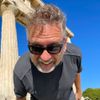Week 169: Settling into Mytiline
We settle into Mytiline and get some boat maintenance and human maintenance out of the way.

We've started and ended the week in the same place, but it doesn't mean that there hasn't been a lot of movement in between! My phone reports a "significant increase in activity" from around 3,000 steps a day (optimistic, to be fair) while we're underway to now around 12,000 a day, which is a much healthier number.
It was helped along by a tour that Seamus organised for Sunday morning. Run by a local woman Olga, who also works as an English teacher, it was a very detailed and engaging introduction to Mytiline and some of the history of Lesvos. It's traditionally been a very wealthy island. Although that's less true today, it still has a significant industry of its own and doesn't rely on tourism like many other Greek islands.
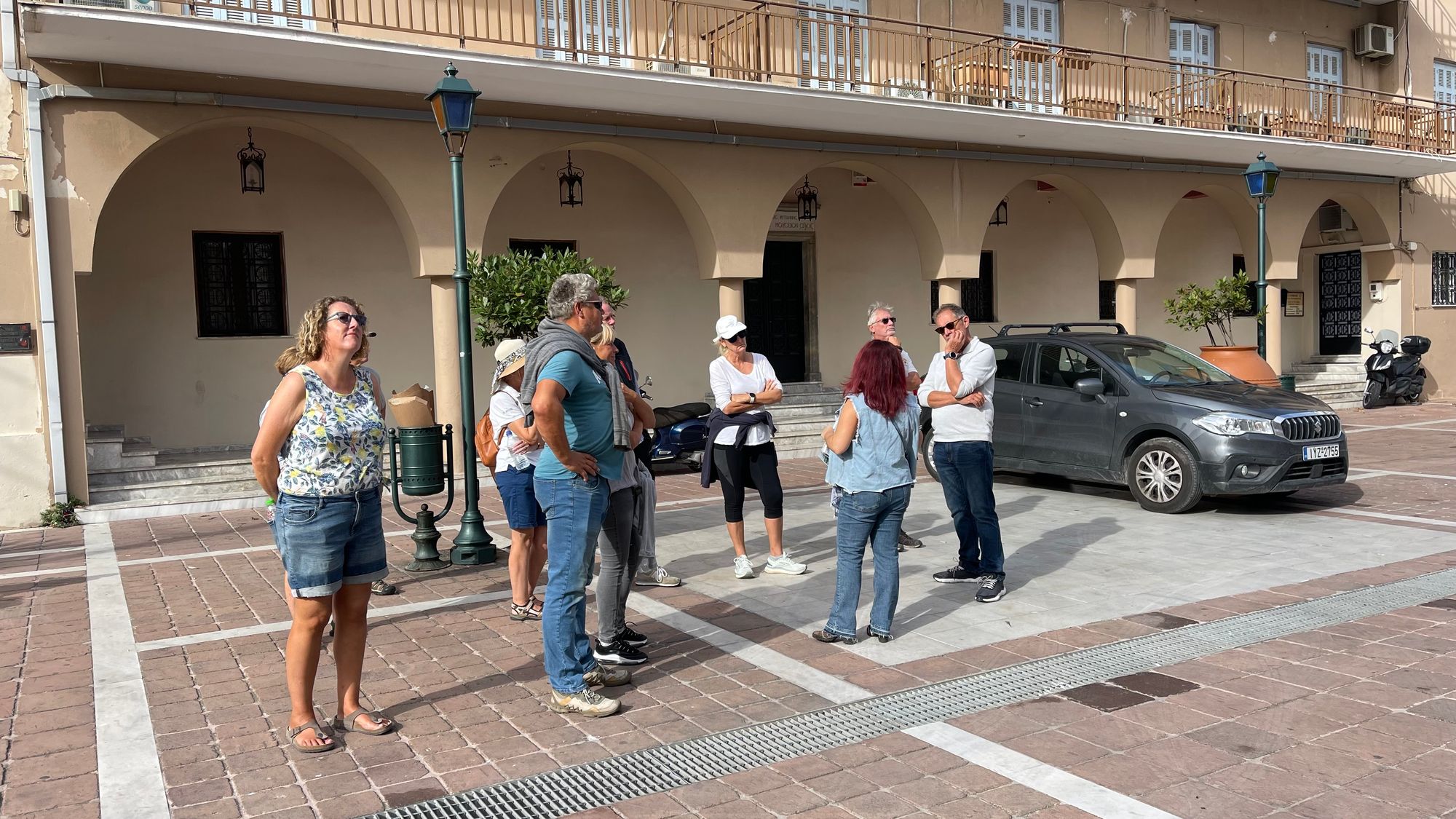
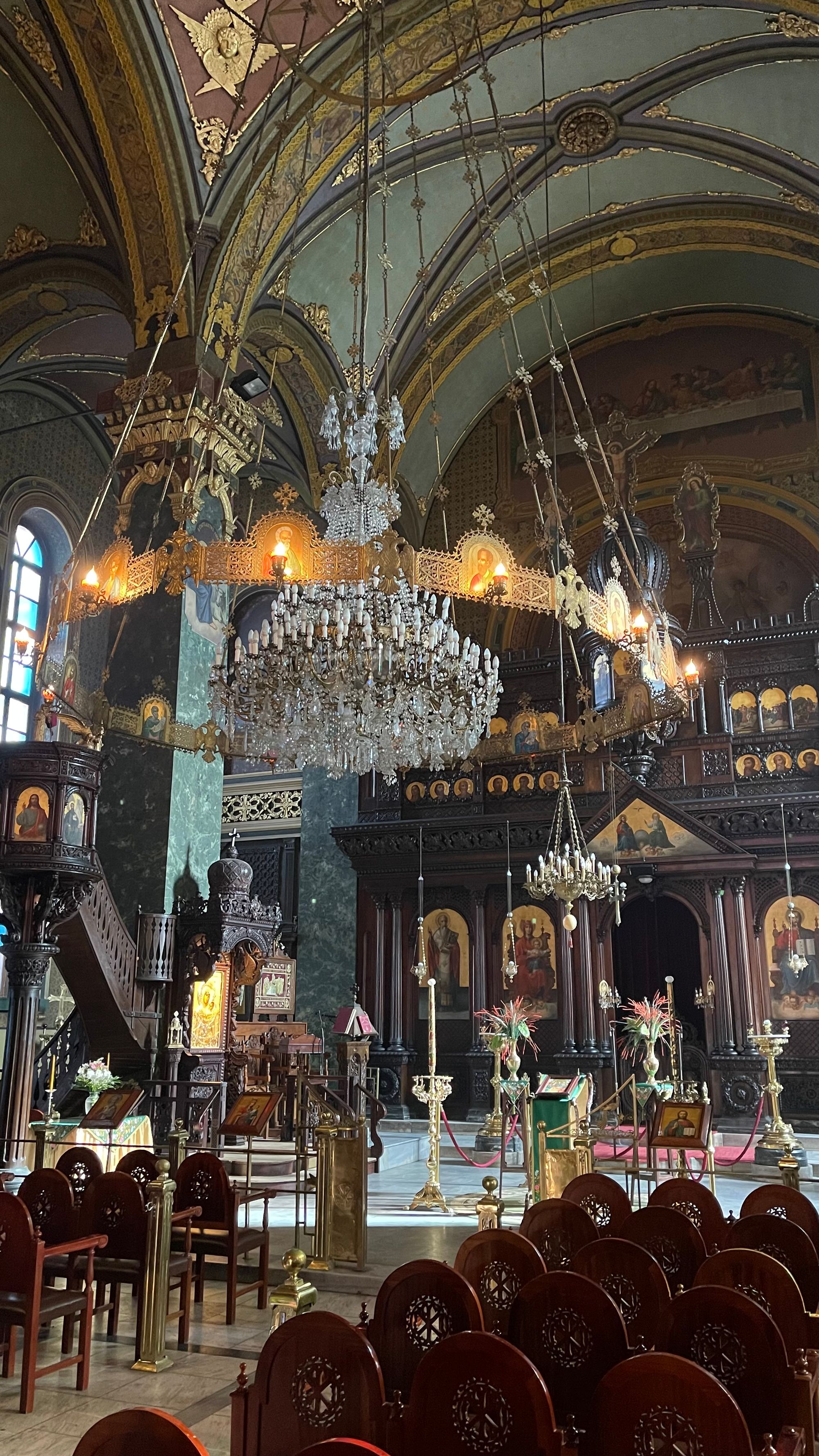
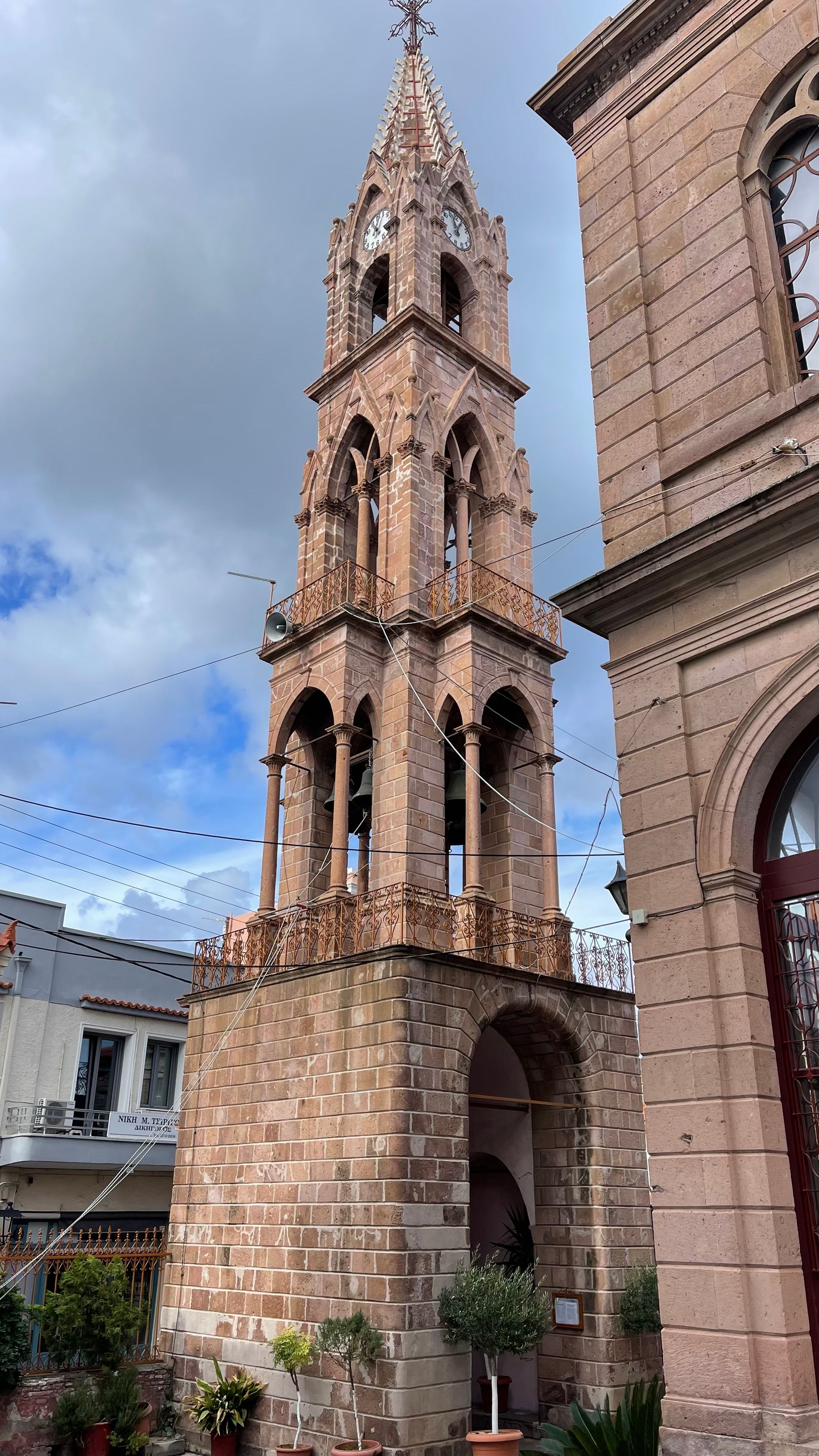
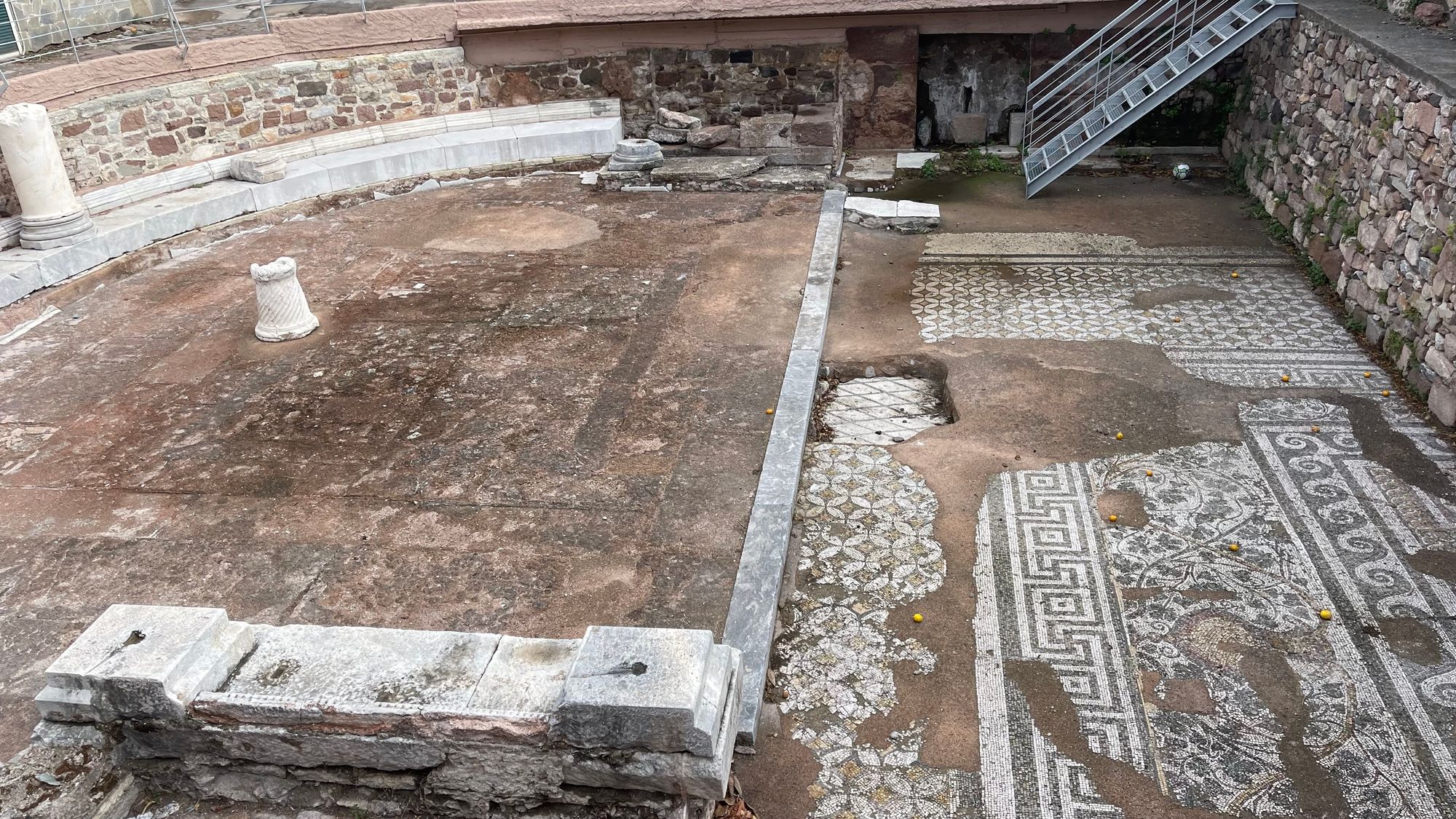
Some of the sights of Mytiline. The interior of one of the churches.
It's quite large (the fourth largest island in Greece) and covered in 0lives, so a lot of its wealth came from the olive trade. It's very conveniently placed to export olive oil up into the Black Sea. It's also the largest producer of ouzo! 50% of Greek ouzo is produced here in Lesvos.
When you visit Mytiline, the capital city, this wealth is immediately obvious in all the old mansions that dominate the streets. Built by merchants, both Greek and Turkish, they line the edge of the old town and stretch down along the beach towards the airport as summer houses. Lesvos was freed from Ottoman rule in 1922, and during the population exchanges that followed, many of these were abandoned. Now, roughly 50% of them are restored, but lots are in various stages of neglect. An interesting quirk is that they almost all have the same interior floor plan but externally look quite different as the owners competed to impress with the exterior design.
The tour took us through the centre of the city down Ermou Street, and I finally learnt what this means! There's an Ermou street in Athens, in Aegina and, in fact, on most islands you visit, but I could never find the origin of it. It means "Market Street." It comes from Hermes (Ermis in Greek), the winged messenger who was also the god of commerce. Ermis becomes Ermou (belonging to Hermes). So that's why every town has an Ermou street.
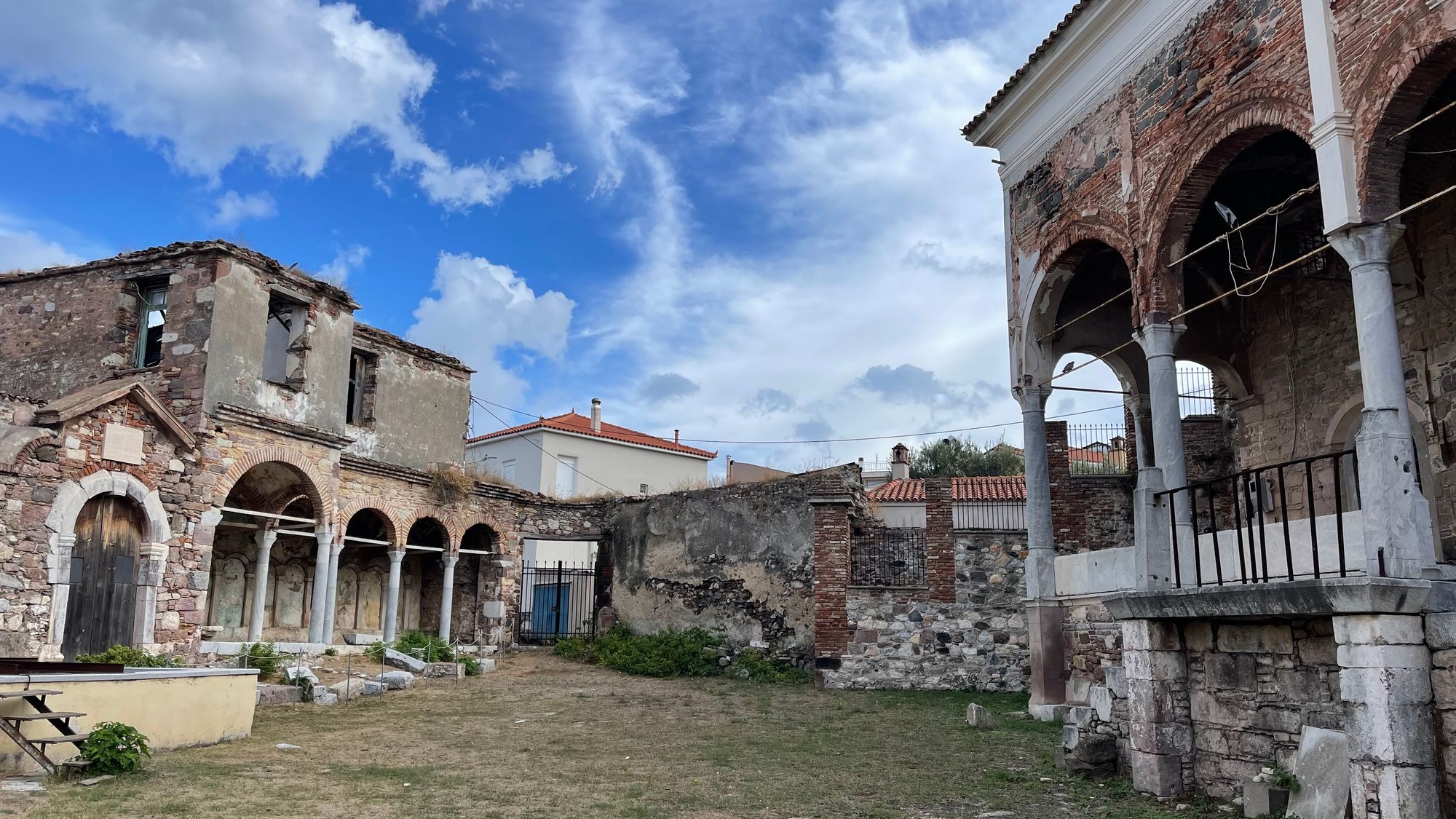
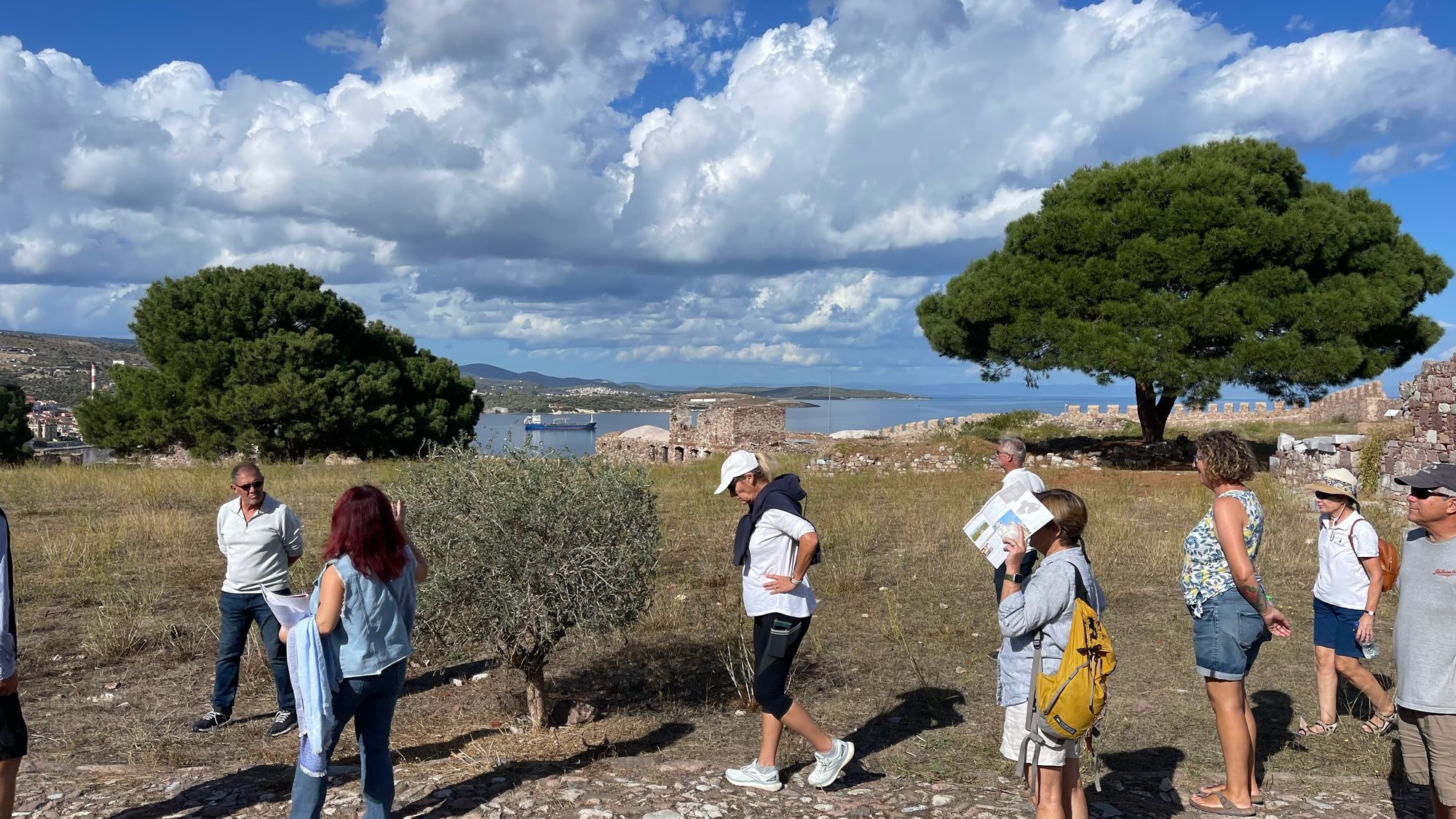
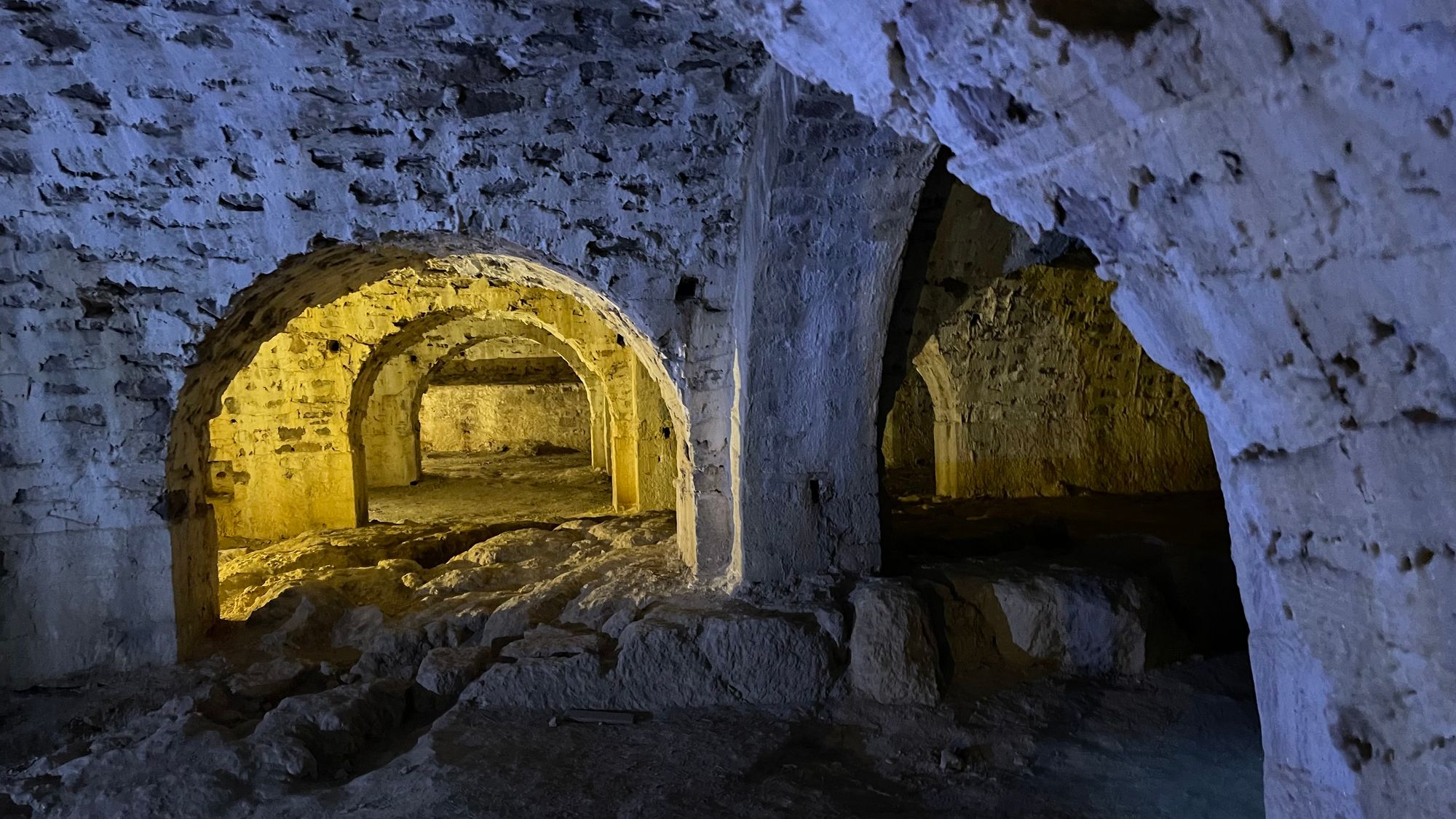
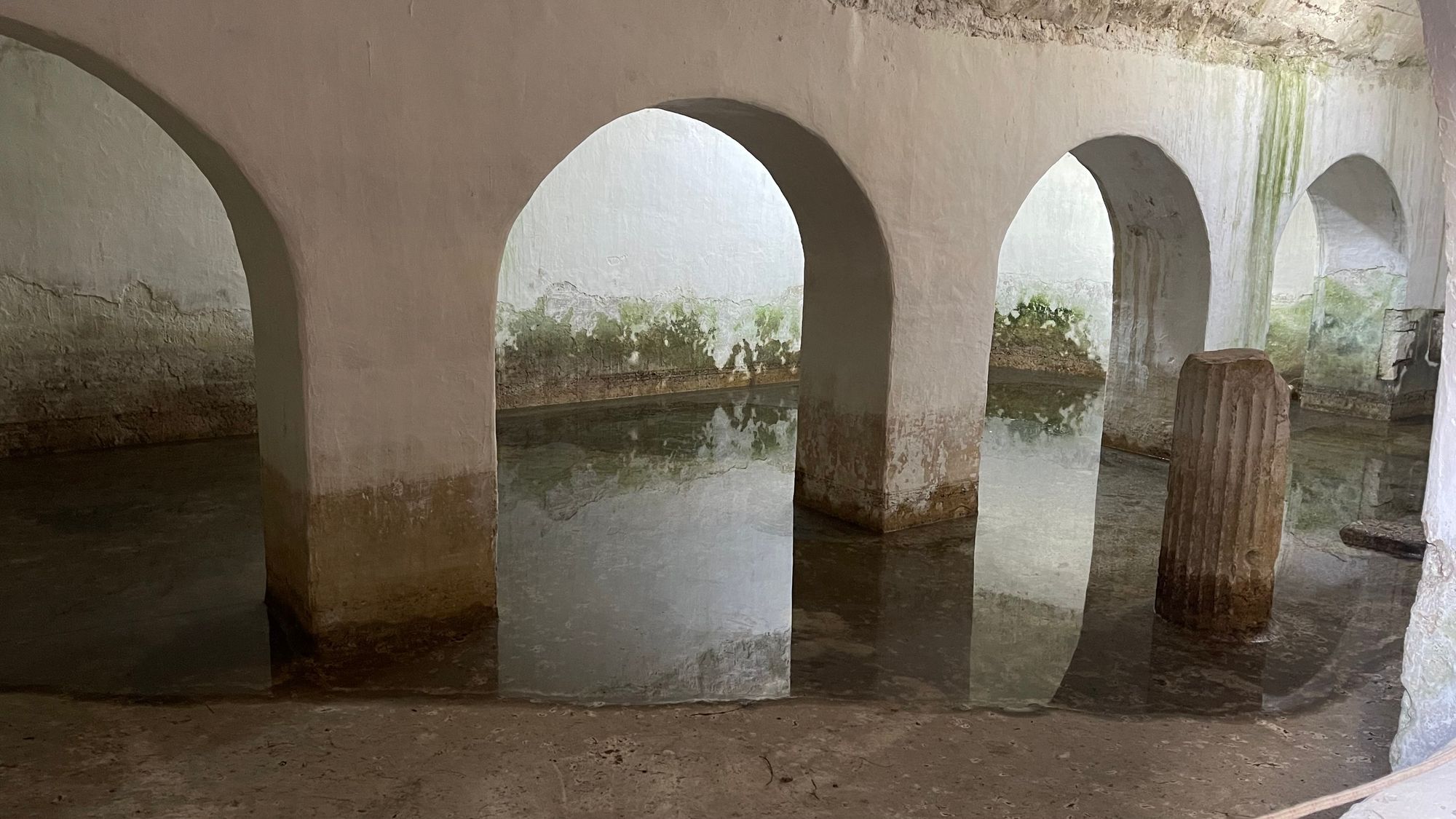
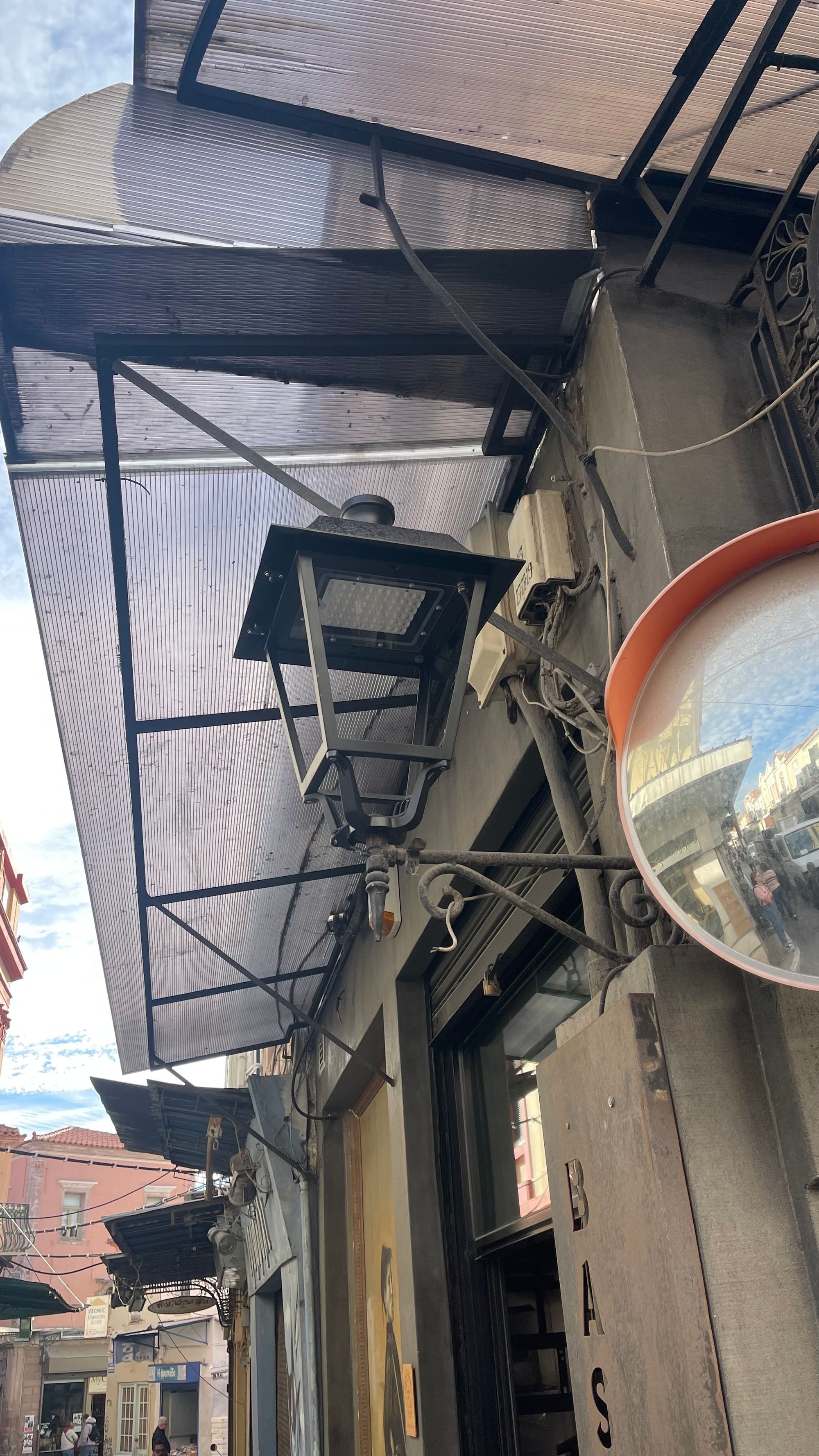
The old mosque, inside the castle, the crypts under the castle and the old cistern. The lanterns used to be powered by gas, now LED lights.
It's a lovely old street with plenty of touches of its history if you know what you're looking for (or have a guide to point them out). The old light fittings, now with LEDs, are still original and started as gas lanterns. The old Olive Markets, now clusters of small shops. The first hotel on Mytiline. It's all still here but layered with modern facades.
Another fascinating piece of history is an old ruin by the marina which we had no idea about. It turns out it was built by a Roman ruler who had a reputation as a bit of a glutton/epicurean, and he built it as an aquarium to hold fresh fish for eating later. It has a sluice, which you can still see once you know what it is you're looking at, that allowed water in to freshen it, and they would pull fish out for his meals. He still has an influence on local Greek; there is a saying here which translates to "As full as <can't remember his name>", which you say after a meal.
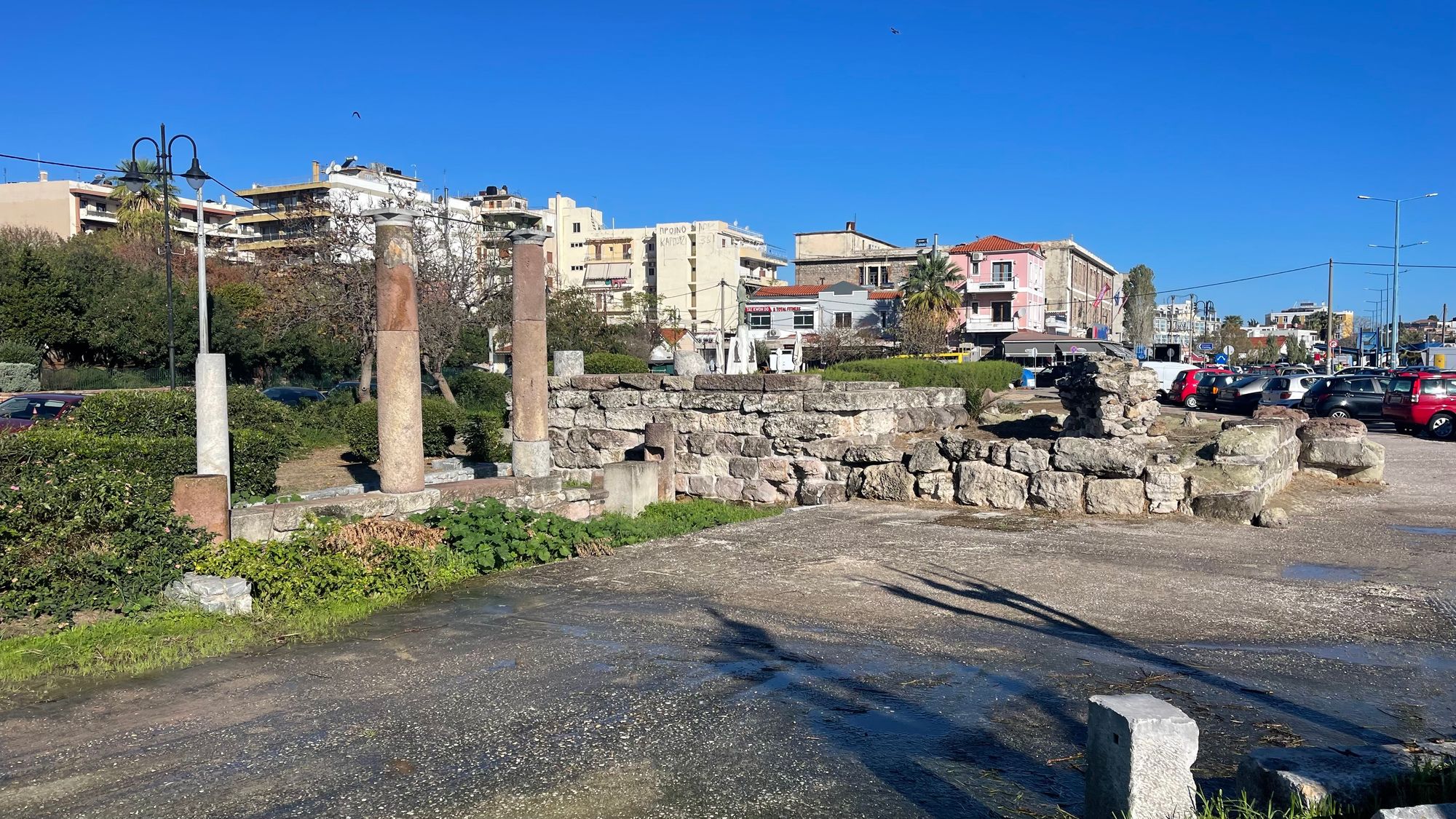
The old commercial harbour is to the north of the castle (where we are is to the south, and in ancient times, this was the military harbour). If you wanted to trade, you had to pay a tax, so to ensure that this happened, the authorities lined the bottom of the harbour with marble. There were only a few places left unlined where you could drop an anchor, and you had to pay the tax in order to receive a map that showed you where you could safely stop.
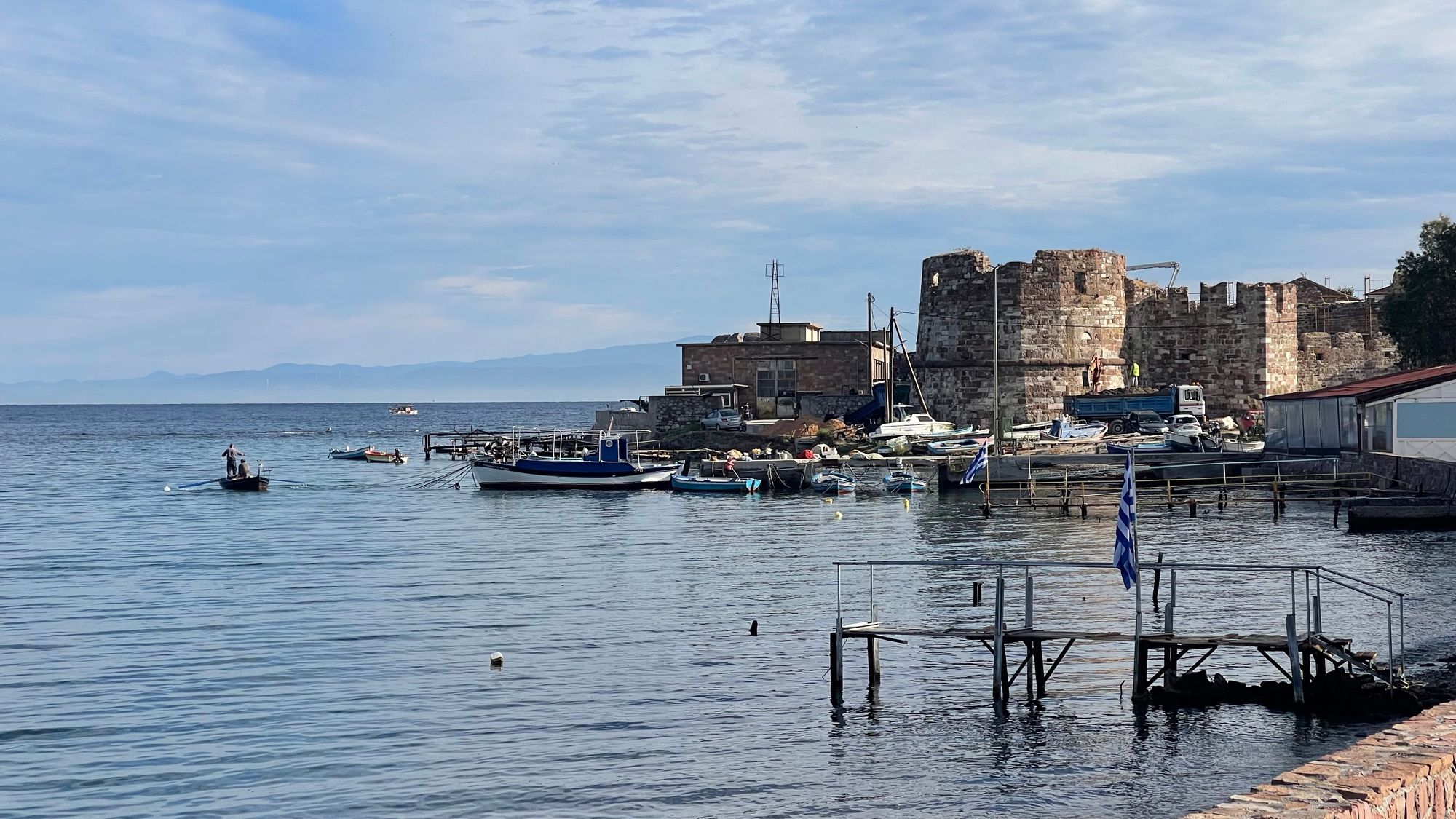
As you can see, Mytiline has a very rich history, and we sense it. Around every corner, there's a new building to discover, an exposed foundation for an ancient temple or bits of the old Ottoman presence with Mosques and a Hammam.
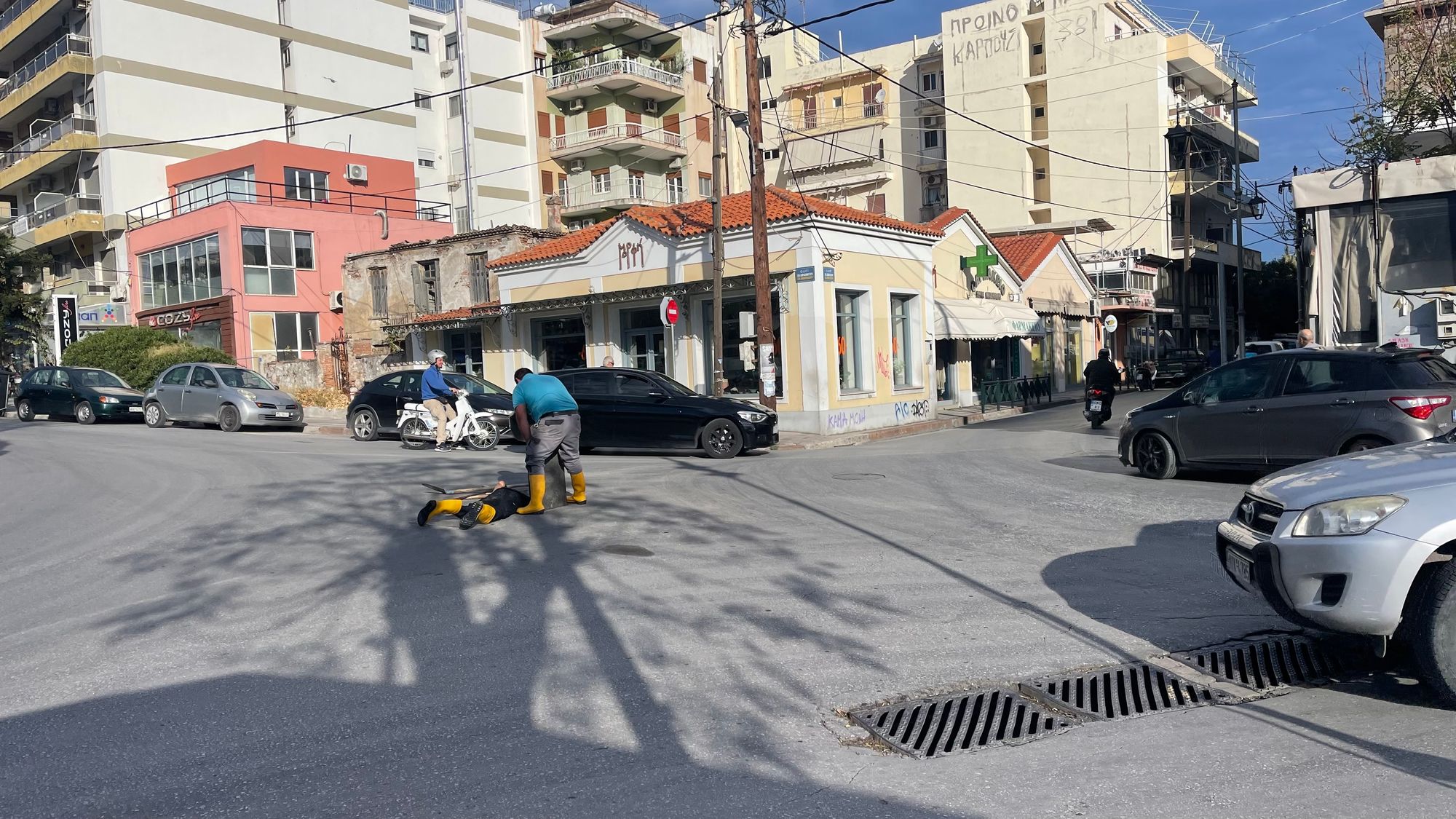
Of course, the historical components of the city have changed a lot over time. Sometimes, the 'usual' (pressure for building materials) meant that the castle was stripped of its interior buildings to build houses for refugees from the population exchanges with Türkiye in the 1920s. Other times, due to politics. Despite being hundreds of years old, the local authorities refused to maintain the mosque and the hammam. Over time, the mosque, in particular, collapsed in the '80s, losing its minaret and roof. Now, there's some money to preserve what's left, but it's interesting how politics also plays a role in what version of history you choose to preserve.
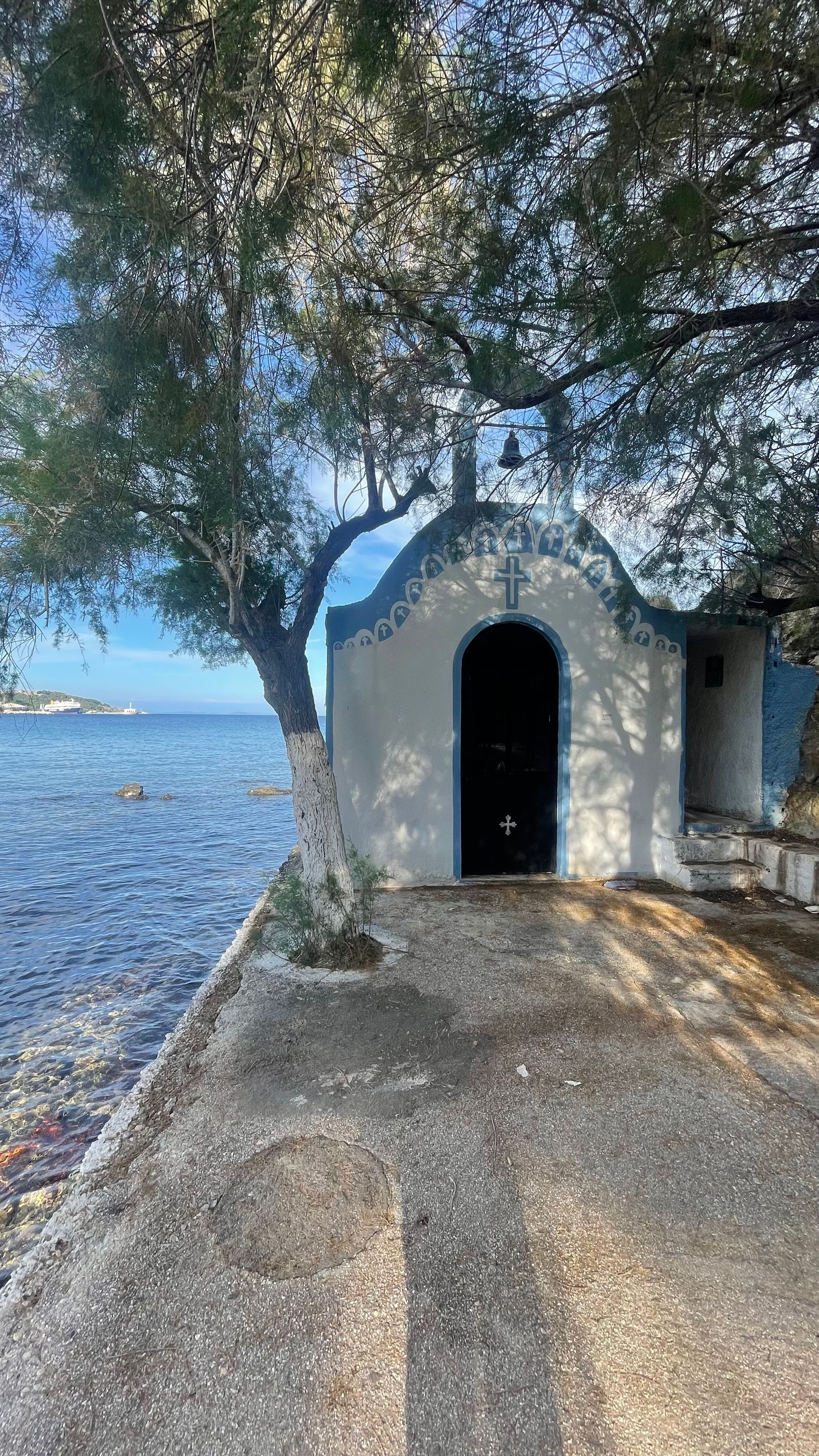
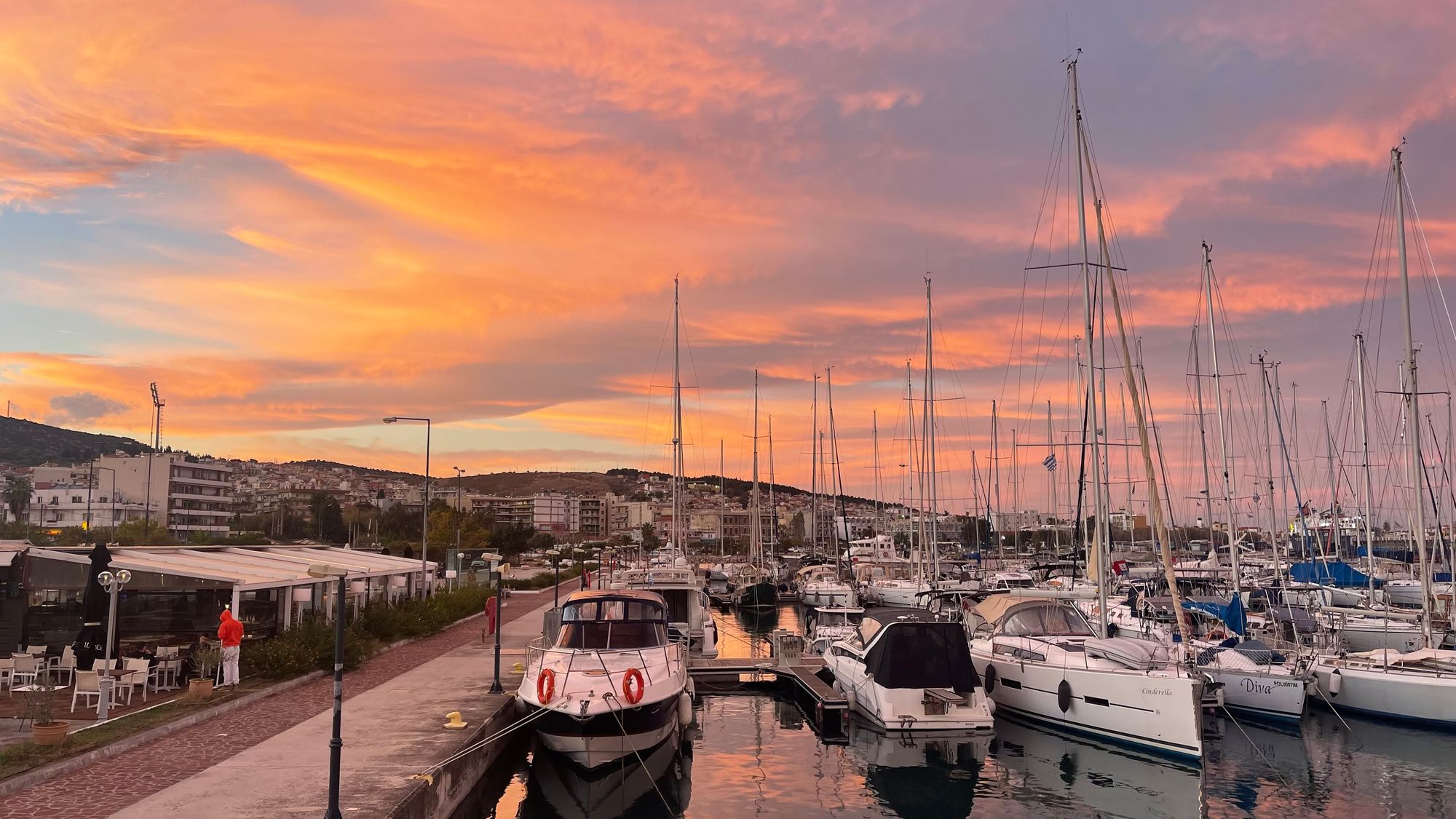
Mytiline
Aside from that, it's been doing lots of chores. Not just the occasional boat chore but human ones as well. I have had a mark on my ear for some time that's been concerning, so I visited a specialist, and they immediately cut it out and sent it off for a biopsy – possible skin cancer, but we'll know more next week. Either way, it's been removed now, but for all our sailor friends out there, a timely reminder to get suspicious spots checked!
I also had a hearing test done at the same time and found out why I can't hear the alarms on the chart plotter - I'm moderately deaf at higher frequencies. Unfortunately, this is not age-related but a bit more pronounced than that. Most likely, it's due to a misspent (well spent?) youth with too many loud guitar amplifiers and music concerts. Nothing to be done about it now other than know it's there. It's not severe enough for a hearing aid, but it's something to add to the list of regular checkups.
Karina had a blood test and the latest Covid-19 vaccine, something I'll organise for myself when we return from Edinburgh (I was unsure about having my ear chopped and a vaccine the next day, so I chickened out). And I managed to get a haircut and a follow-up appointment for my ear. So, lots of little but important things were done.
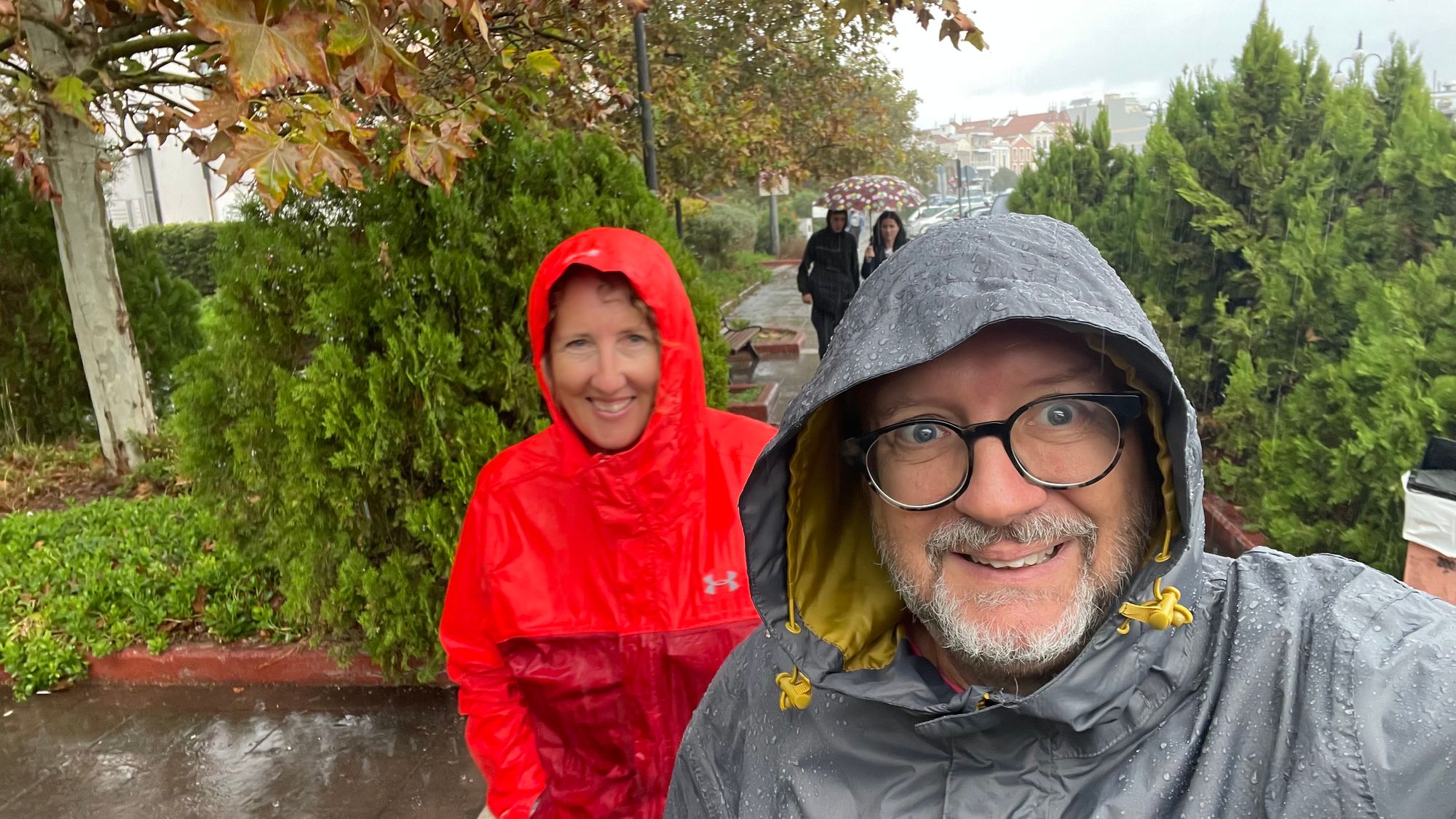
As far as boat jobs are concerned, we have the local Volvo mechanic lined up for our end-of-season service. I put a power outlet under the seat in the salon to fill a hole left by moving the air conditioner, and we put up Christmas lights as well. A little early, but we will be leaving for a couple of weeks and wanted our friends to be able to enjoy them before we left. Cooinda and Flying Fish now have their lights up as well, and it's all looking quite festive here!
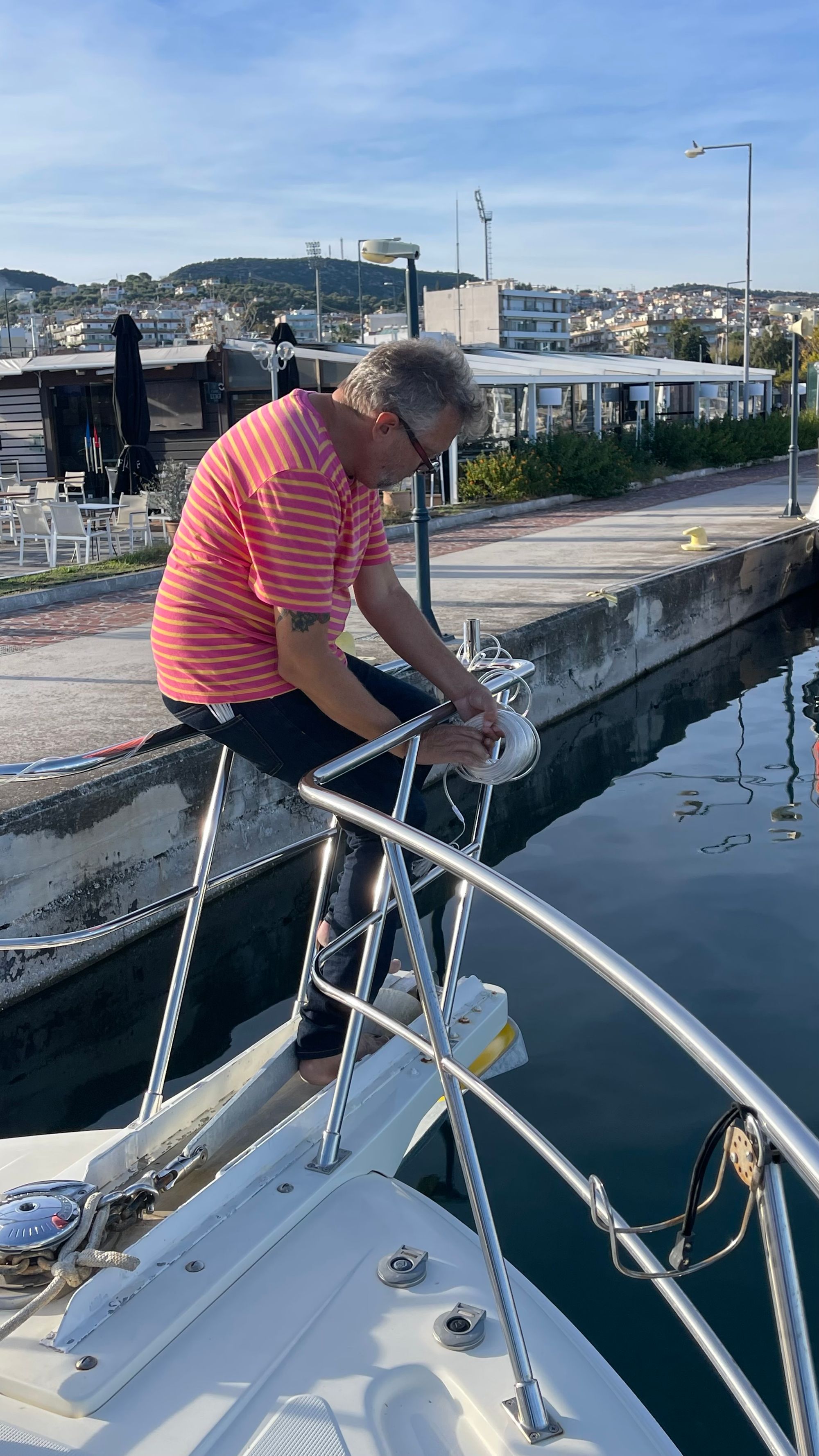
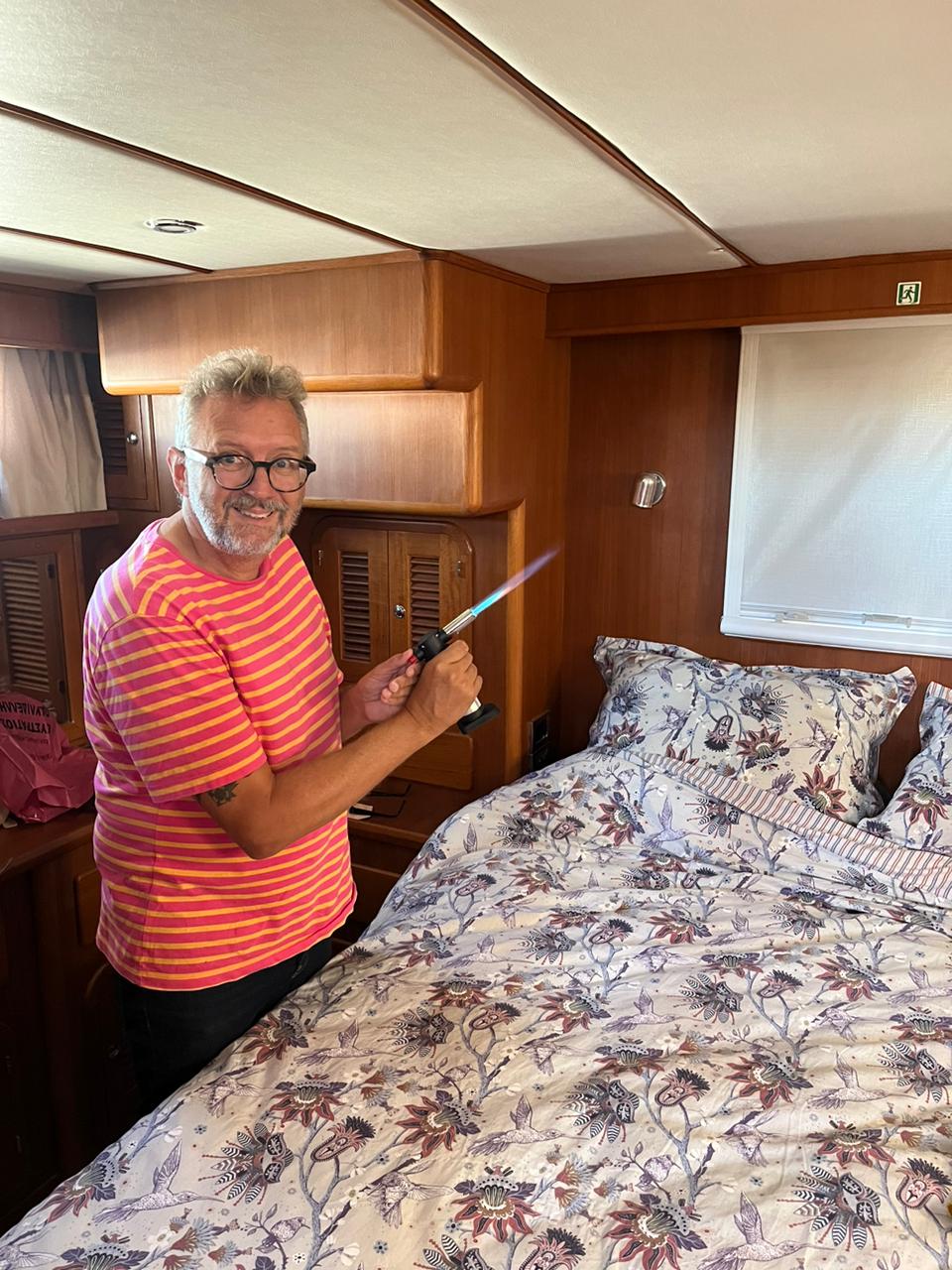
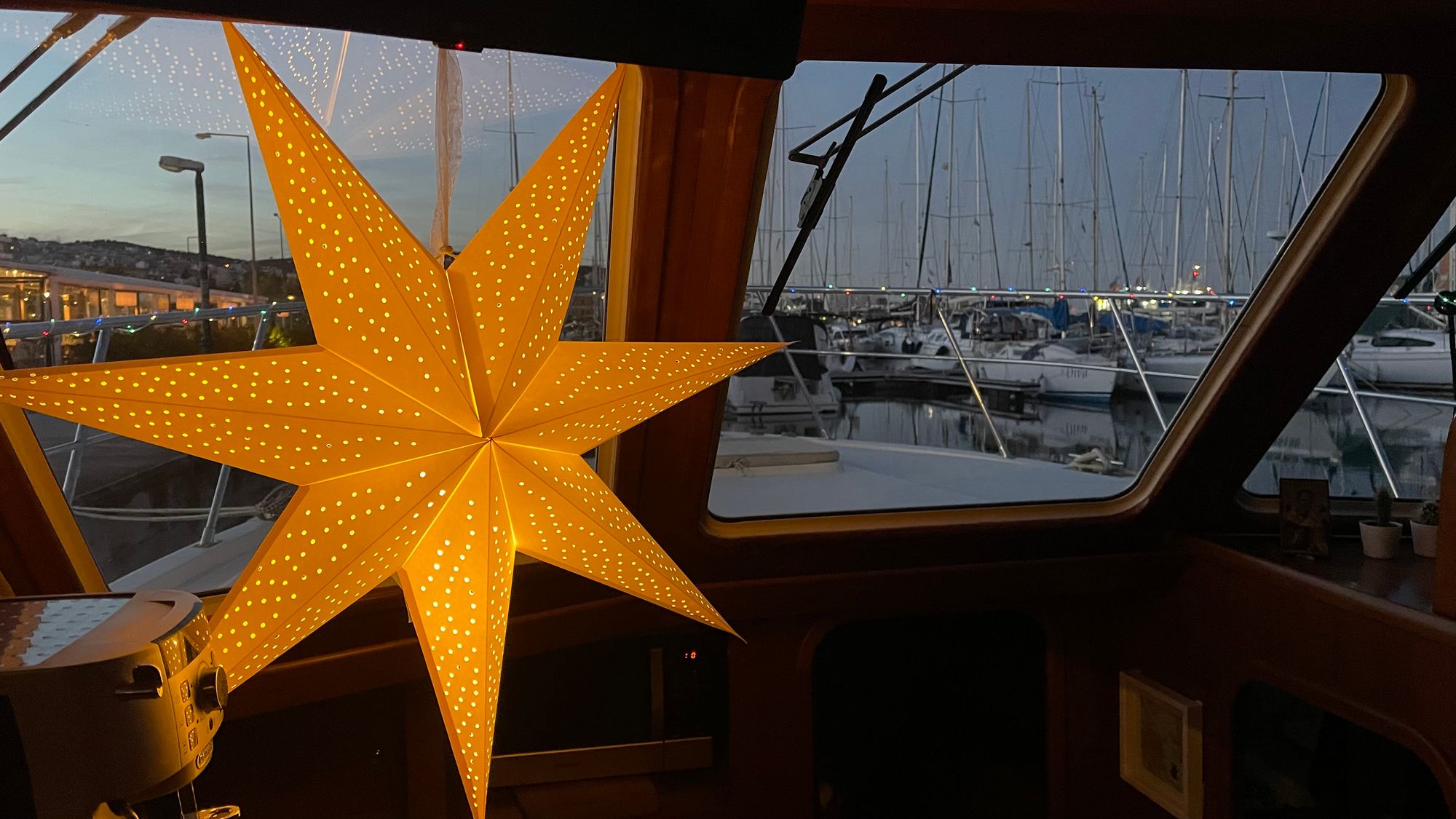
Fitting lights, the blow torch - one problem that we have with the oven is it cooks but doesn't brown. This should fix that problem! The Christmas star we were gifted by Inge's family last year at Christmas.
Winter has properly arrived on Saturday, with lots of wind, rain and a sudden drop in temperature. It's been snowing in northern Greece, and the wind pushing down here to Lesvos is very cold. I don't think we'll see any snow here, but it is miserable outside. One positive with all the rain is that long-time readers might recall we had a lot of issues with leaks in Montenegro last season. Well, it seems like they've disappeared. It's most likely that something on top of the arch was causing the problem, and with that all being removed and resealed in Türkiye, it's no longer leaking, which is fantastic.
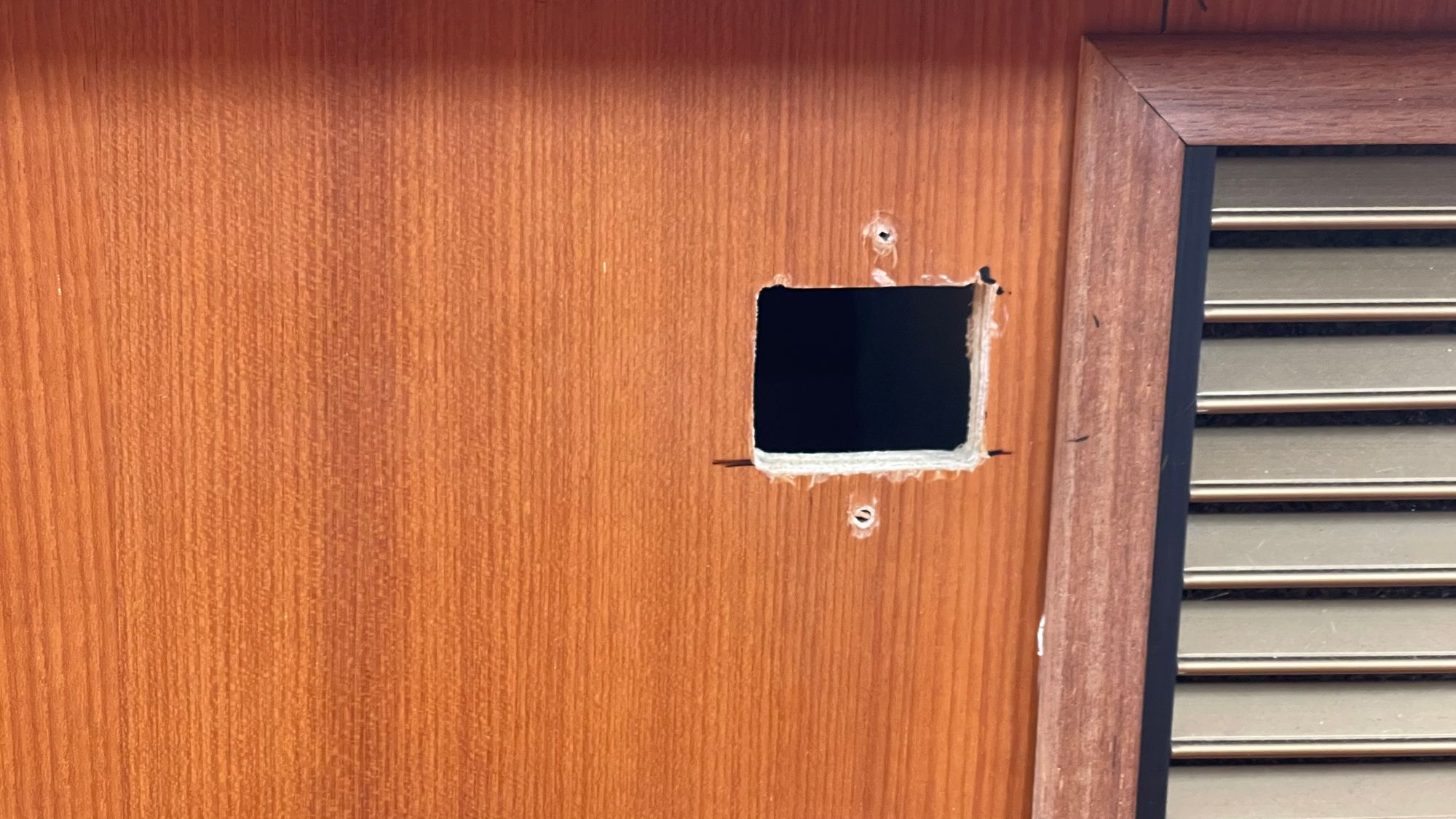
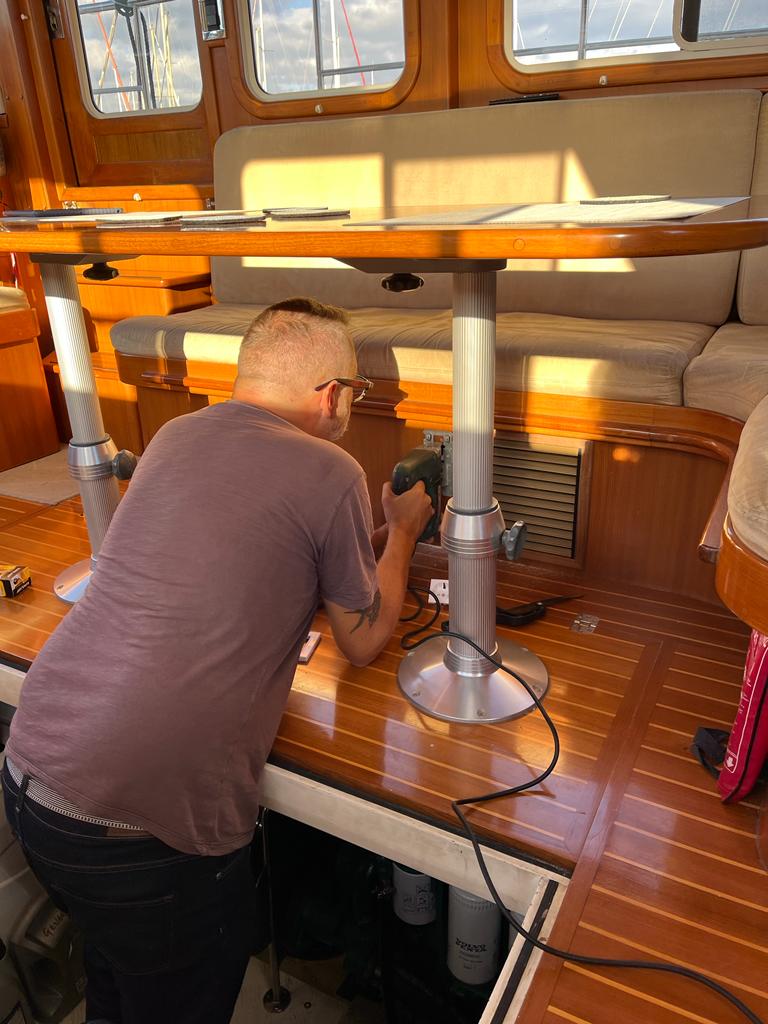
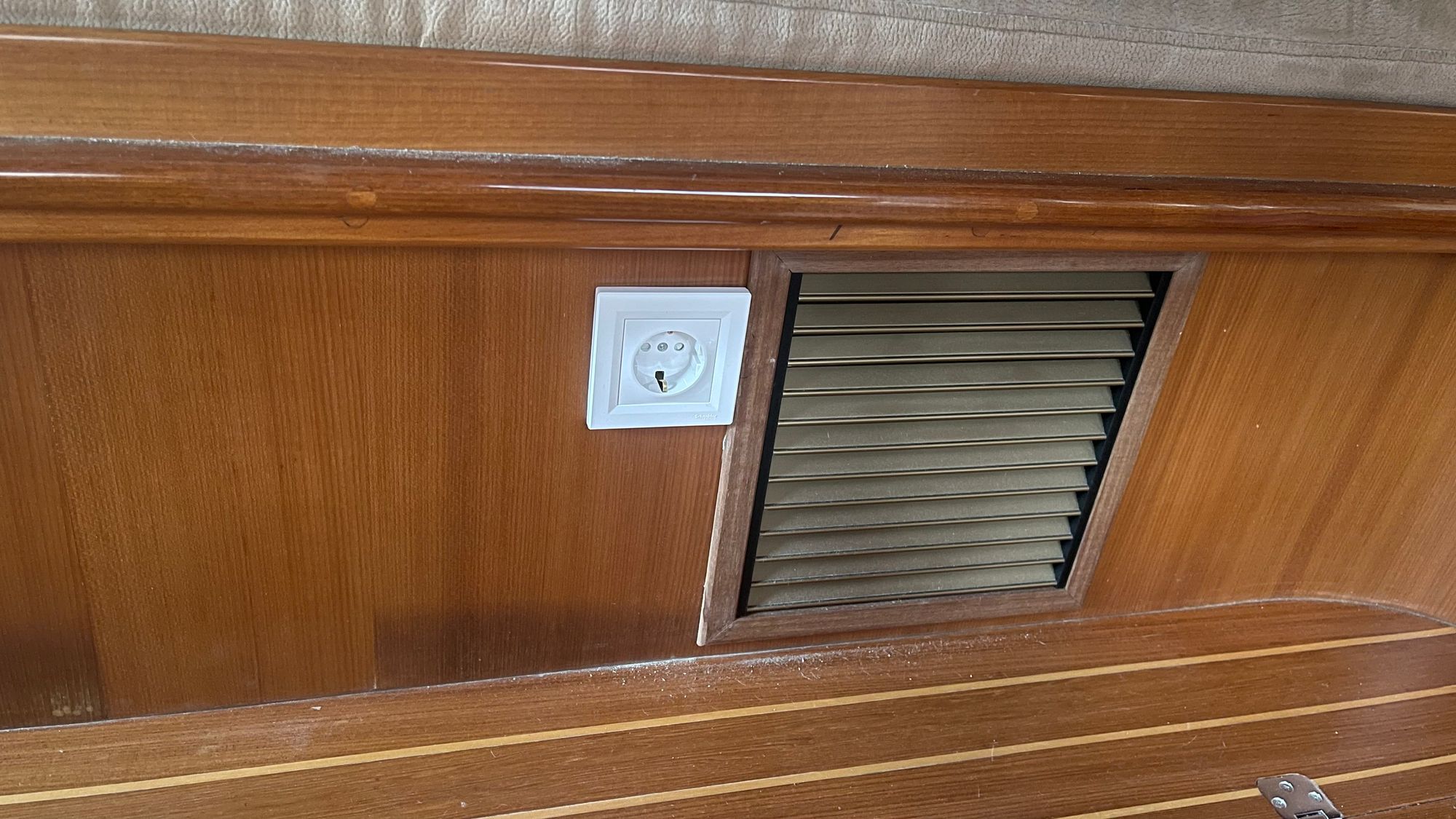
Before, during and after fitting the new power outlet.
We've also been socialising with some of the new neighbours and getting to know the others in the marina, as well as spending some time with our existing friends. We'll have a meal together at the local restaurant tonight, and tomorrow (Monday), we're off to Athens for a week, then Edinburgh the week after, so lots to keep us entertained as we continue to settle in for winter. The Webasto (diesel heater) had its first proper run today, and thankfully, it's working well!
Until next time!
Tim & Karina
